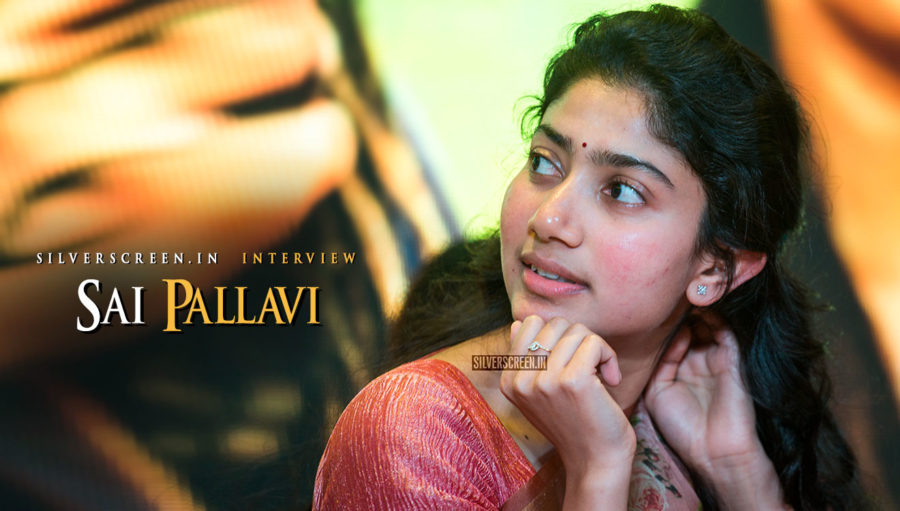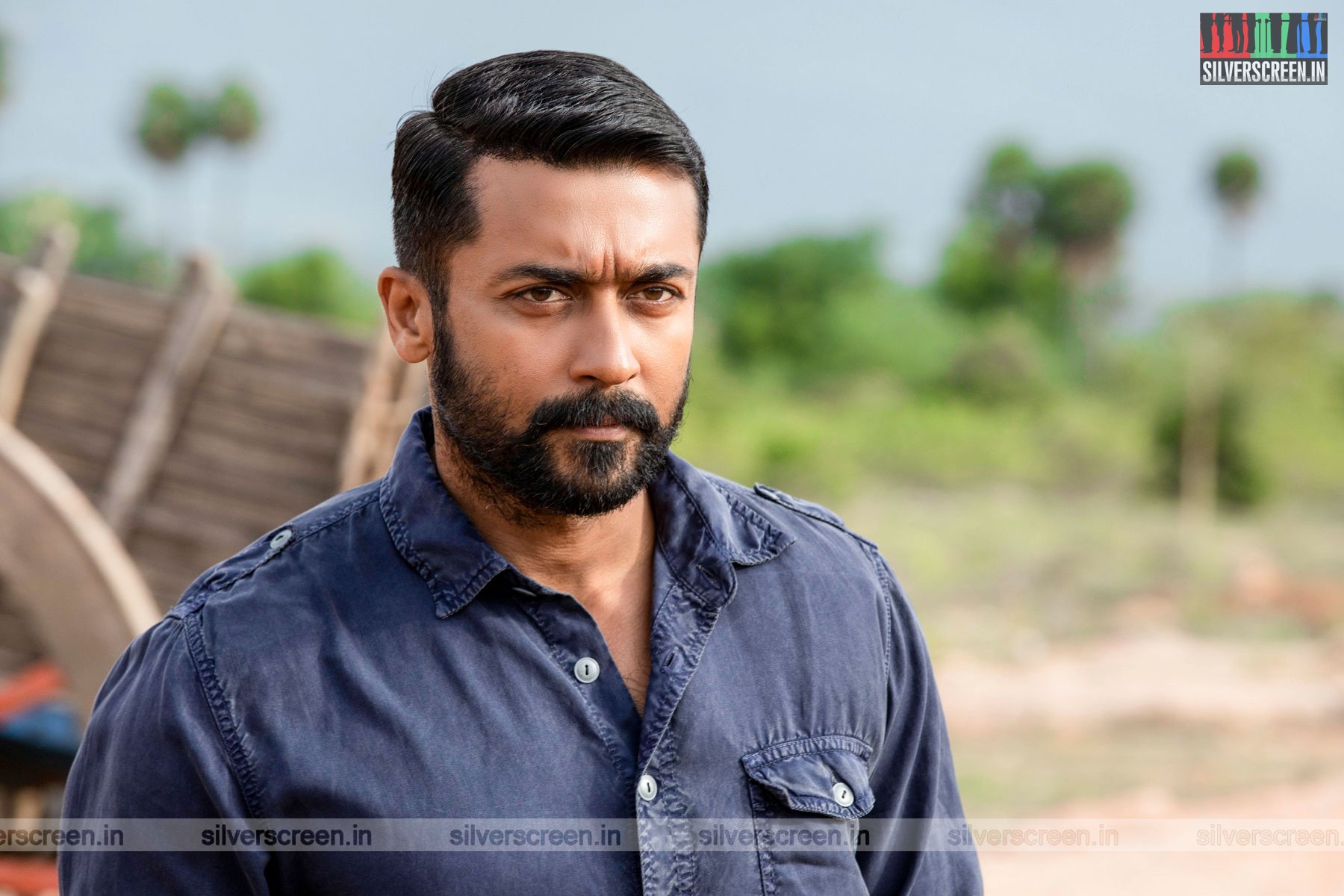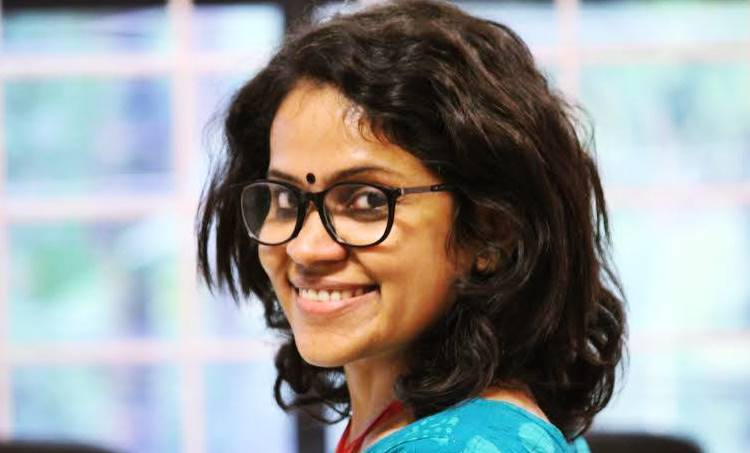This Friday, actor Sai Pallavi is coming back to Malayalam cinema after a gap of three years, through Athiran, directed by Vivek Thomas Varghese and written by PF Mathews. The 26-year-old, one of the most popular young artistes in South Indian film industry, talks to Silverscreen.in about Athiran, her four-year-old acting career and the many ups and downs of it, and how her relationship with cinema has changed over these years.
On the Monday afternoon that we talk, Sai Pallavi isn’t keeping well. She apologizes profusely for the delay in picking up the call. “I tend to fall sick easily,” she says. “Last year was particularly hard on me. I did three films, and my body bore the brunt of it.” This year, she has signed just one film, in Telugu with Rana Daggubati. Selvaraghavan’s NGK: Nandha Gopalan Kumaran, which she worked in last year, will release in theaters this May.
Athiran’s teaser, which released a week ago, might have created an impression that it’s a horror flick. “But it isn’t. It’s a thriller. I have done a lot of new things in the film that I can’t wait for you to see,” says the actress.
The film, written by veteran writer-scenarist PF Mathews, is set in a mental asylum on a misty mountain. Sai Pallavi plays an inmate at the facility, while her co-star, Fahadh Faasil, plays a doctor who arrives there to unravel its many mysteries. It is her third Malayalam film, after Premam (2015), her acting debut, and Kali (2016). It wasn’t like she didn’t consider a project in Malayalam in the last three years. “Of course I listened to scripts. Sometimes when I knew that a certain other actor would be better in that role, I told that to the director. Sometimes I gave up a project because of my concerns about dubbing in my own voice. I always want to dub for myself, and I don’t feel very comfortable dubbing in Malayalam. So, in some way or the other, no project happened.”
Nevertheless, when she listened to Athiran’s script, she didn’t want to let it go. “I really liked the script. This is a character I have never done before. But I was also insecure because of the dubbing problem. I even asked the director to look for a dubbing artiste whose voice matched mine. But he said I would be able to do it since the character, Nithya, isn’t much of a talker. There are few dialogues.”
She heard the script while she was shooting for NGK. “There were two versions of the script, equally brilliant, before the shoot began. I rarely meet people like Vivek and Mathew sir who are very sensible and confident about what they do. They started Athiran from a one-line idea; developed the film from the scratch without pinning it to one actor,” she says. “We started the shoot in November, and wrapped up in January. This is the best thing about Malayalam films – they always have small schedules and short schedule breaks. It makes it easier to stay in character. When there is a lot of gap in between schedules, you tend to get distracted.”
Athiran helped her grow as an actor. “All my costars in the film are supremely talented artistes. They are too real in front of the camera. It is amazing to see how these people – with whom I was chatting away a while ago – suddenly transform into their character. I learned so much from them.”
As someone who always suffers from a ‘character hangover’, Athiran was tough to handle, she says. “I am someone who carries a lot of emotional baggage home from a film after the shoot is over. While the characters I had played before Athiran were normal people, here, I was carrying back home leftovers of a very unusual character living in unusual circumstances. The only people to see it and deal with it are my parents (Laughs).”
Four years since she started her journey as an actress, her approach to cinema has undergone many changes. “I have learned to unlearn,” she says. “I watched Kumbalangi Nights recently, and was bowled over by Fahadh’s performance in the film. Later, when I came to dub for Athiran and saw him as a doctor, in a role that has very different emotional dimensions, I was so surprised. He is so natural as an actor. But more than that, there is something he does differently in each film. Something so minute or subtle that it is hard to explain. When you have to cry on screen, you need to know how much you have to cry. I have started to understand how good actors perform.”
“And now,” she says, “I love cinema more than I used to. I now do things that I never knew was possible by me. I feel grateful for this life which enables me to live as a character for three months, and be seen and appreciated for it. I am always very light on myself, never forcing myself to do anything.” There is a flip side too. “Over the course of time, I had to learn to pretend,” Sai Pallavi says. “I am always under arc lights and public glare. There are a lot of people watching my every action. At one point, I realized that even when I am unhappy, I have to put a smile on my face. This started affecting me negatively. I started behaving strange. I would sometimes burst out crying, just like that. An aftermath of repressing so much emotions. But when I go in front of the camera, and later, when I watch myself on screen, I feel all the pain is worth it.”
***
Sai Pallavi has, time and again, proved to be a brilliant actress who can grasp the nuances of the character she plays. Slowly and steadily, she has created a sizable space for herself in the three south Indian film industries. Her name, now, draws a value in the film market that not many of her contemporaries can claim. “I feel the pressure of shouldering this responsibility to meet everyone’s expectations. On the sets, everyone is looking at you to see what are going to do next. How you are going to perform. I know it’s of utmost importance to perform better than what I did in the previous film, so I keep asking the director and others for feedback. I have to set my character apart from my own self and from the characters I have played before.”
In four years, she acted in just a handful of films while she could have easily hogged all the limelight that came naturally to her. She made her debut in her mother-tongue, Tamil, only last year, after she had done two projects each in Malayalam and Telugu, languages that she learned from scratch to dub for her characters. Although her screen-time in Premam was minuscule, she was instrumental in the film’s stupendous success. She was the face of Fidaa (2017), a romantic-comedy, and Karu (2018), a horror-drama, and in Maari 2, although she starred alongside one of the biggest stars in Kollywood – Dhanush – she shone bright.
“I signed every film I worked in because I had faith in the project. I don’t know how to explain my method. For instance, I don’t know why I signed Fidaa although I didn’t know Telugu at that point of time, let alone the Telangana dialect. But I ended up doing it. Until Athiran, I had been wary of working with first time directors. I don’t know why I decided to trust Vivek (Laughs).”
The only philosophy that she follows is that someway or the other, her character should be vital to the course of the film. “When they walk out of the theater after watching the film, the audience should feel that I was instrumental to the main plot. I want to be seen. At Maari Press meet, Dhanush sir joked about it. He said, Pallavi either wants to influence the plot or be the plot. (Laughs).”
In Premam, director Alphonse Putheren made smart use of Sai Pallavi’s extraordinary dancing skills. The particular sequence where her character Malar takes the hero George and the audience by surprise, by performing an impromptu dance, is still a popular video on YouTube. The video song in Fidaa, Vachinde, where she dances at a wedding sequence, had surpassed the YouTube record for most views set by Dhanush’s immensely popular Kola Veri video. Maari 2 bit the dust at box-office, but the dance video from the film, Rowdy Baby, topped all charts for many weeks and broke YouTube records. The song is currently ranked 12 in Billboard list of the most-popular YouTube video songs. The song was choreographed by actor-director-dancer Prabhu Deva, on the same sets where, in 2008 before her film debut, she appeared on the dance reality TV show called Ungalil Yaar Adutha Prabhu Deva.
“I don’t dance at home like I used to.. I don’t know why,” laughs Sai Pallavi. “The only fitness activity that I do religiously is play badminton three times a week.”
Dancing with Dhanush, a talented dancer himself, was ‘scary’. “He has too much energy that I can’t bring on board. I am more fragile. Working with someone stronger and sharper than me was terrifying. And there is Prabhu Deva, someone whom I admire so much. It’s a style I had never done before. Eventually, when people received it well, I just felt so happy. And I was very visible in the dance,” she says.
Alongside big wins, she has learned to handle failures too. Her recent films, Karu and Padi Padi Leche Manassu didn’t do well at the box-office. “If the audience saw and felt exactly what you wanted them to, I think your work is a success. That’s how I take it. Padi Padi Leche Manassu revolved around these two characters. When the film didn’t do well, I felt disappointed, not because of the box-office numbers, but because our work didn’t meet the audience’s expectations. I thought maybe I didn’t portray my role well or maybe my character didn’t turn out to be interesting. It’s important for me as an actor to perform in a better way the next time. That’s how I like to handle failure.”
Sai Pallavi made headline in January when she refused to accept Rs 40 Lakh, the pending remuneration from the producers of Padi Padi Leche Manassu. She cited the financial loss the film incurred as reason for turning down payment for her role. It was no big deal, she says. “Just what a friend does for another friend who is in crisis.”
Recommended
“We worked on the film for over an year. By the end of the period, the team had become very close like a family. We thought the film would do well, but it didn’t. Of course it crushes you when you put one and half years into a project and it isn’t received well by the audience. I refused to take the rest of the payment because I didn’t want producer garu to feel the financial pressure. I told him he could give me the amount later, if he wanted to, when he is in a comfortable position. The producer was very keen to give me the money, and even asked me to consider it as an advance for my next film.”
“I don’t take success or failure into my head,” says the actress. “I am happy and thankful when people say good things about me, watch my films and say they loved me in it. It doesn’t go beyond that. I am still in that stage.”
*****
This Sai Pallavi interview is a Silverscreen exclusive.



